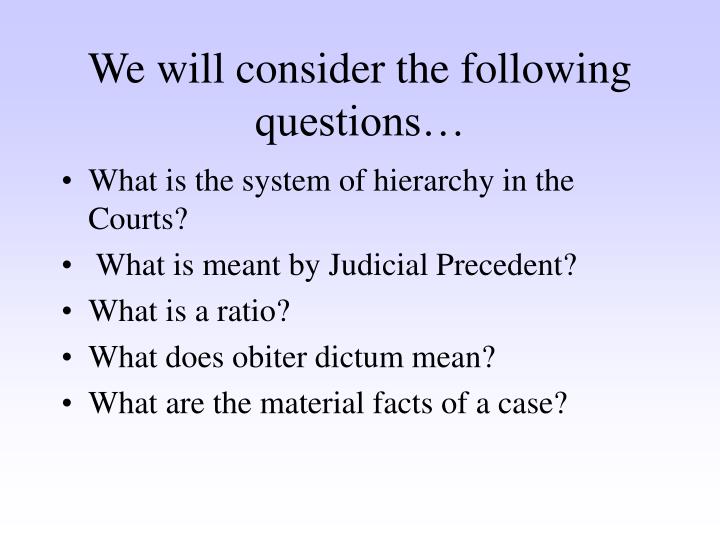
There are, of course, lots of folks who use the term “judicial activism” sloppily-often seemingly deliberately. I think it’s a virtue, not a vice, of the term “judicial activism” that it calls attention to the underlying battle over judicial philosophy. I’ll also highlight that distinguishing a judicial-activist decision from one that properly overrides a law depends in turn on what methodof constitutional interpretation is proper. It’s distinct, for example, from a second category, which I call “judicial passivism”-the wrongful failure to enforce constitutional rights. Let me highlight that judicial activism is merely one category of judicial error. More particularly, the term “liberal judicial activism” draws its potency from the Court’s repeated entrenchment since the 1960s of the policy preferences of the Left in the guise of constitutional rights. Judicial interpretation of the Constitution is not a mere intellectual game, and the term “judicial activism” succinctly captures the Court’s wrongful invasion of the realm of representative government and the injury that invasion inflicts on the powers of American citizens. What is it and why do you consider it damaging to republican government?Īs I use the term, “judicial activism” on constitutional issues refers to judicial decisions that wrongly override (usually through the invention of newfangled constitutional “rights”) laws or policies that flow from the democratic processes. You have written a lot on judicial activism. (And, given our new president, the prospect of improvement is distant.) Given the current composition of the Court-four living-constitutionalists who regularly engage in liberal judicial activism and a fifth, Justice Kennedy, who frequently does-any real progress is going to require the addition of some better replacements for those five. That trajectory, which I believe to be one of steep decline into liberal judicial activism, needs to be reversed if American principles of representative government are going to be restored. But my main reason is that a myopic focus on pending cases has the unfortunate effect of obscuring the decades-long trajectory of the Court. In part I don’t do so because so many other folks do. I generally don’t spend a lot of my time focusing on the Court’s current caseload. Beyond the legal questions, the case is notable because the Second Circuit panel engaged in remarkable shenanigans to bury the firefighters’ claims-and because the presiding judge on that panel was Sonia Sotomayor, who is widely viewed as a leading contender for appointment to the Supreme Court by President Obama. DeStefano, which presents the question whether New Haven city officials violated the Title VII and equal-protection rights of city firefighters when they threw out the results of two promotional exams merely because they didn’t like the racial composition of the group of firefighters who did well on the exams. One case that I’ve been following closely is Ricci v. There’s also the likelihood that that any 5–4 decision that has Stevens, Souter, Ginsburg, and Breyer in dissent will be hyped by the media. I don’t anticipate any genuine blockbuster rulings, though there’s certainly potential for the Court to continue to mess up areas of the law. The term, which will wrap up at the end of June 2009, strikes me as a rather quiet one, with the usual assortment of cases across a broad array of issues.

What are the big issues facing the Supreme Court in the current term? In addition to clerking for Justice Scalia, he was a law clerk to Judge J.

Whelan previously served on Capitol Hill as General Counsel to the U.S. In that capacity, he advised the White House Counsel’s Office, the Attorney General and other senior DOJ officials, and Departments and agencies throughout the executive branch on difficult and sensitive legal questions. Whelan was the Principal Deputy Assistant Attorney General for the Office of Legal Counsel in the U.S. From just before the terrorist attacks of September 11, 2001, until joining EPPC in 2004, Mr. Whelan, a lawyer and a former law clerk to Supreme Court Justice Antonin Scalia, has served in positions of responsibility in all three branches of the federal government. Edward Whelan III, President of the Ethics and Public Policy Center in Washington, D.C. The University Bookman is pleased to present this exclusive online interview with M.


 0 kommentar(er)
0 kommentar(er)
